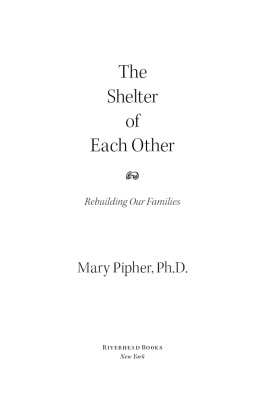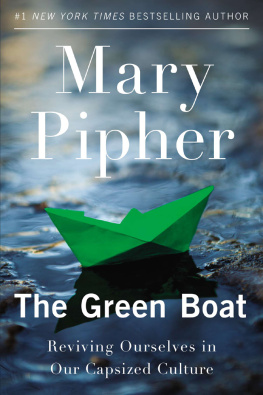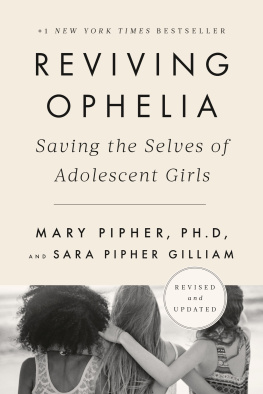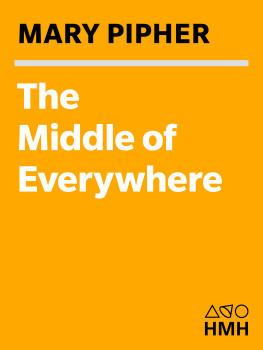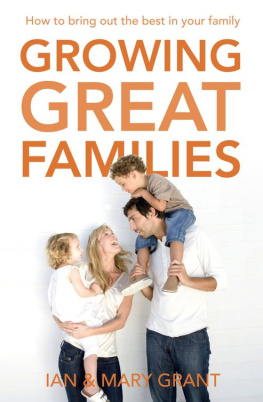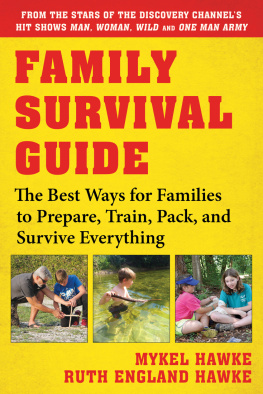Praise for
The Shelter of Each Other
The bestselling author of Reviving Ophelia once again looks at American culture to explain our problems.... In short, she believes our culture is tearing apart the fabric of the American family and community. Yet she also offers hope by demonstrating ways of strengthening communities and bringing families closer together, using real-life success stories. This is a book that... every person should read.
Library Journal
This new book is an expansion of Reviving Ophelia but offers more ideas for change.... Piphers message about families is a combination of nostalgia and call to action.
The Washington Post Book World
Lively, straightforward... The Shelter of Each Other offers hope for the American family in a time that challenges its viability.
Kirkus Reviews
Using her analytical and storytelling skills, Pipher lays out the cultural, technological, and economic forces that are tearing families apart and creating a crisis of meaning and values in the society as a whole.... The Shelter of Each Other generates a feeling of warmth and a sense of possibility that families need not be doomed. What families need today, [Pipher] says, is hopeand her book succeeds in showing how to build it.
Milwaukee Journal Sentinel
As she tells stories of familiesher own and otherstherapist Pipher focuses on small victories in what she calls the current family-hurting culture. Distancing herself from therapies that pathologize families, Pipher claims to have experienced the power of hope that can be stimulated through carefully chosen family stories. In even the most dysfunctional families, she discerns threads of connectedness that have led to empowerment of her clients as they became more capable of handling their own lives. Pipher recommends an empathetic approach to families efforts to survive in a difficult era, one that parallels the homesteading years of her grandparents earlier in this century. She offers plain and practical talk for beleaguered parents and the families they are trying to protect.
Publishers Weekly
Also by Mary Pipher, Ph.D.
WRITING TO CHANGE THE WORLD
ANOTHER COUNTRY
REVIVING OPHELIA
HUNGER PAINS
RIVERHEAD BOOKS
Published by the Penguin Group
Penguin Group (USA) Inc.
375 Hudson Street, New York, New York 10014, USA
Penguin Group (Canada), 90 Eglinton Avenue East, Suite 700, Toronto, Ontario M4P 2Y3, Canada (a division of Pearson Penguin Canada Inc.)
Penguin Books Ltd., 80 Strand, London WC2R 0RL, England
Penguin Group Ireland, 25 St. Stephens Green, Dublin 2, Ireland (a division of Penguin Books Ltd.)
Penguin Group (Australia), 250 Camberwell Road, Camberwell, Victoria 3124, Australia (a division of Pearson Australia Group Pty. Ltd.)
Penguin Books India Pvt. Ltd., 11 Community Centre, Panchsheel Park, New Delhi110 017, India
Penguin Group (NZ), 67 Apollo Drive, Rosedale, North Shore 0632, New Zealand (a division of Pearson New Zealand Ltd.)
Penguin Books (South Africa) (Pty.) Ltd., 24 Sturdee Avenue, Rosebank, Johannesburg 2196, South Africa
Penguin Books Ltd., Registered Offices: 80 Strand, London WC2R 0RL, England
Authors Note: Except my own family stories, all the characters in the book are composite characters drawn from my life experiences and clinical work. Names and details have been changed to protect confidentiality.
Copyright 1996, 2008 by Mary Pipher, Ph.D.
Excerpt from What a Friend We Have in Jesus, 1855 by Fleming H. Revell Company.
All rights reserved.
No part of this book may be reproduced, scanned, or distributed in any printed or electronic form without permission. Please do not participate in or encourage piracy of copyrighted materials in violation of the authors rights. Purchase only authorized editions.
RIVERHEAD is a registered trademark of Penguin Group (USA) Inc.
The RIVERHEAD logo is a trademark of Penguin Group (USA) Inc.
First Grosset/Putnam hardcover edition: 1996
G. P. Putnams Sons mass-market edition: 1996
First Ballantine Books trade paperback edition: April 1997
First Riverhead trade paperback edition: December 2008
Riverhead trade paperback ISBN: 978-1-59448-372-1
eBook ISBN: 978-1-101-66589-3
The Library of Congress has catalogued the Grosset/Putnam hardcover edition as follows:
Pipher, Mary Bray.
The shelter of each other : rebuilding our families / by Mary Pipher.
p. c.m.
A Grosset/Putnam book.
Includes index.
ISBN 0-399-14144-8
1. FamilyUnited States. 2. FamilyUnited StatesPsychological aspects. 3. Social valuesUnited States. 4. Social problemsUnited States. I. Title.
HQ536.P57 1996 95-50660 CIP
306.850973dc20
Version_1
It is in the shelter of each other that the people live.
IRISH PROVERB
To Bernard and Phyllis Pipher, who have taught me about building strong families.
They have given me their loyalty and steadfastness.
Their love has held my life in place.
ACKNOWLEDGMENTS
I want to thank my aunt Margaret Nemoede, whose book And the Winds Blow Free provided information about my grandparents. I thank all my clients and friends who told me their stories. I am grateful to Andrea Simon, Sherri Hanigan, Beatty Brasch, Laura Freeman, Rose Dame, Natalie Porter, Gertrude Fisher and Jan Stenberg for their conversations about the book. I thank my photographer friend Randy Barger and my two writers groupsPrairie Trout and the Nebraska Wesleyan Writers Group. I thank my readersJan Zegers, Herb Howe, Marge Saiser, Pam Barger, Sue Howe, Ellen Debas, Mary Kenning, Dave Iaquinta, Frank McPherson, Francis Baty and Paul Gruchow. Also, I appreciate the support of Joelle Delbourgo, Rachel Tarlow, Lisa Cahn, Cathy Fox, Kate Murphy, Judy Burns Miller, Susan Petersen and my beloved Jane Isay. Thanks to my agent, Susan Lee Cohen. Thank you to my three families, the Brays, Pages and Piphers, and to Sara, Zeke and Jim.
FOREWORD
J UST after Reviving Ophelia was published, I wrote The Shelter of Each Other. At that time, I was teaching at the University of Nebraska, working as a therapist, and traveling constantly to speak. Looking back on that period of my life, I cannot imagine how I found time to think, never mind write.
The truth is that Shelter fell into my lap. After twenty years of being a therapist, I was brimming with thoughts and stories about families. I was deeply dissatisfied with what had been written on the subject and I could barely type fast enough to keep up with the ideas churning in my head.
By now Shelter has been reprinted a dozen times and translated into German, Hebrew, Dutch, Swedish, Polish and Chinese. Rereading it twelve years later, I am surprised to see how many of my ideas have become mainstream. Ministers, educators and parents all over the world now speak of the toxic culture that children experience. The mental health field is much more family friendly. Competent therapists now work to strengthen and support families in a hostile culture. Mercifully, the word dysfunctional has fallen into disrepute.
I wrote Shelter

